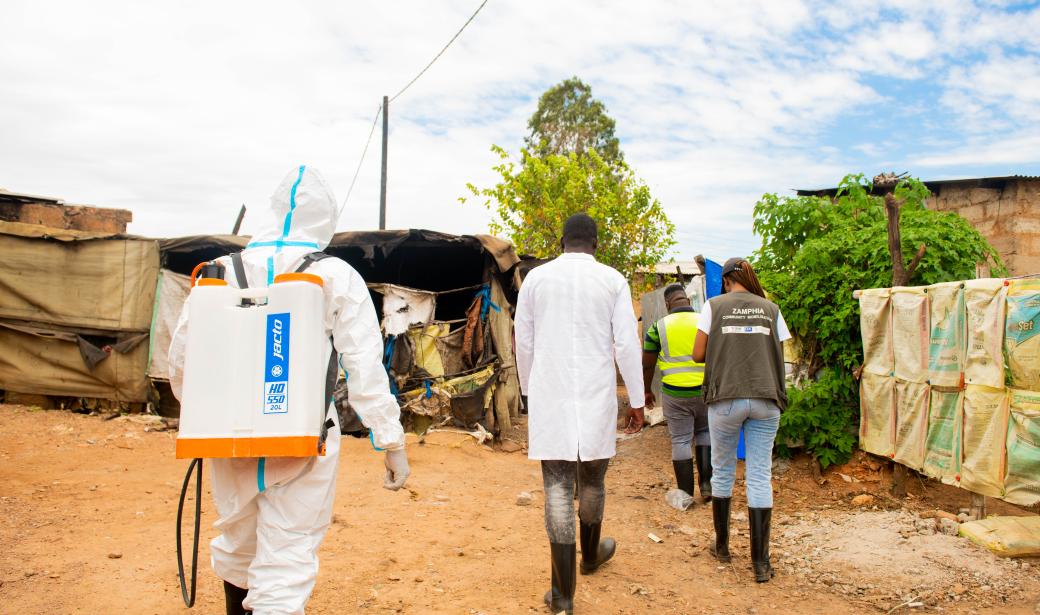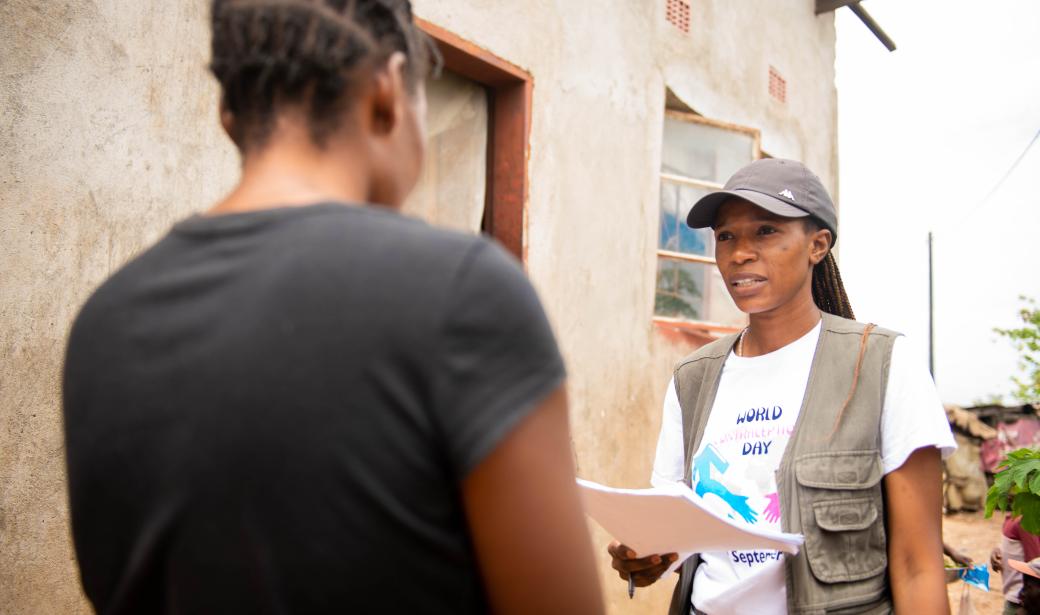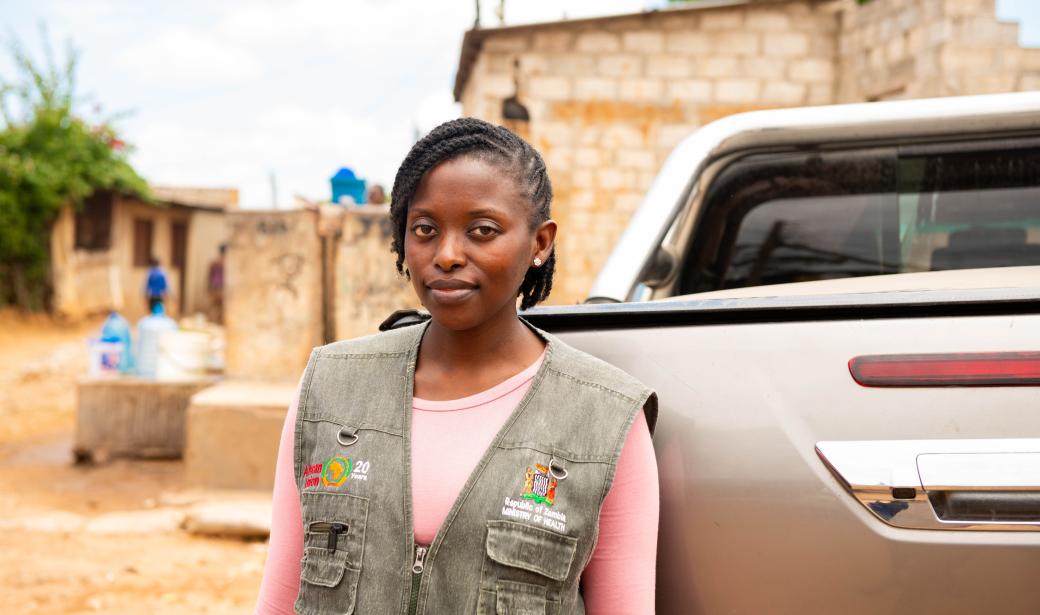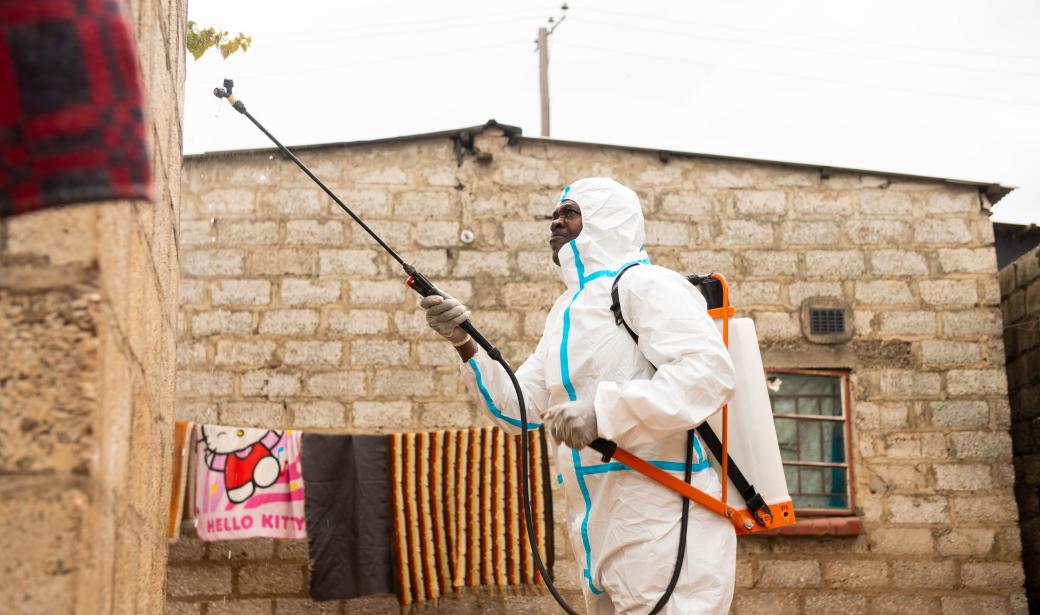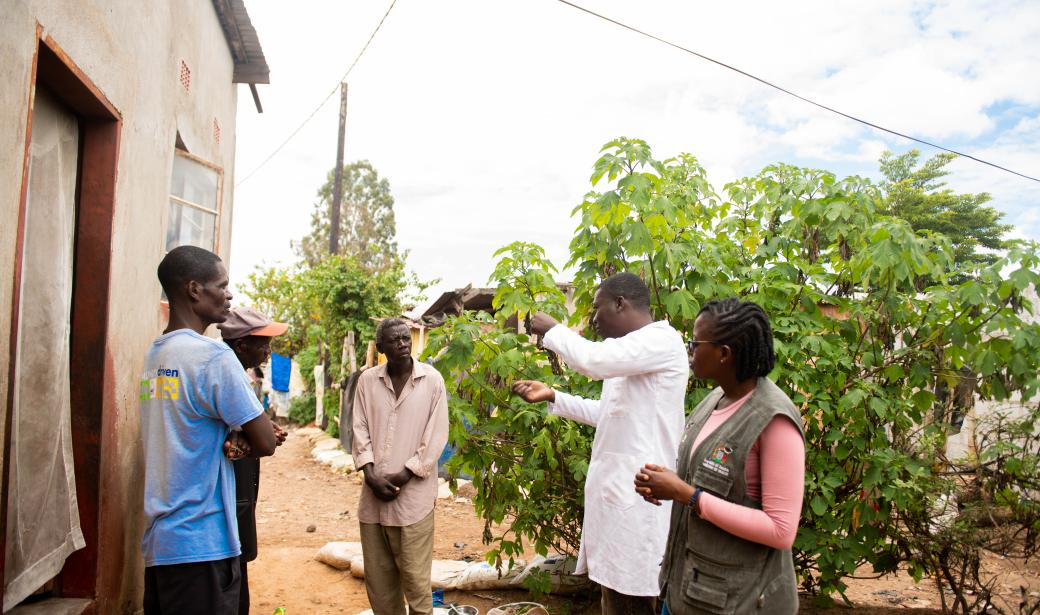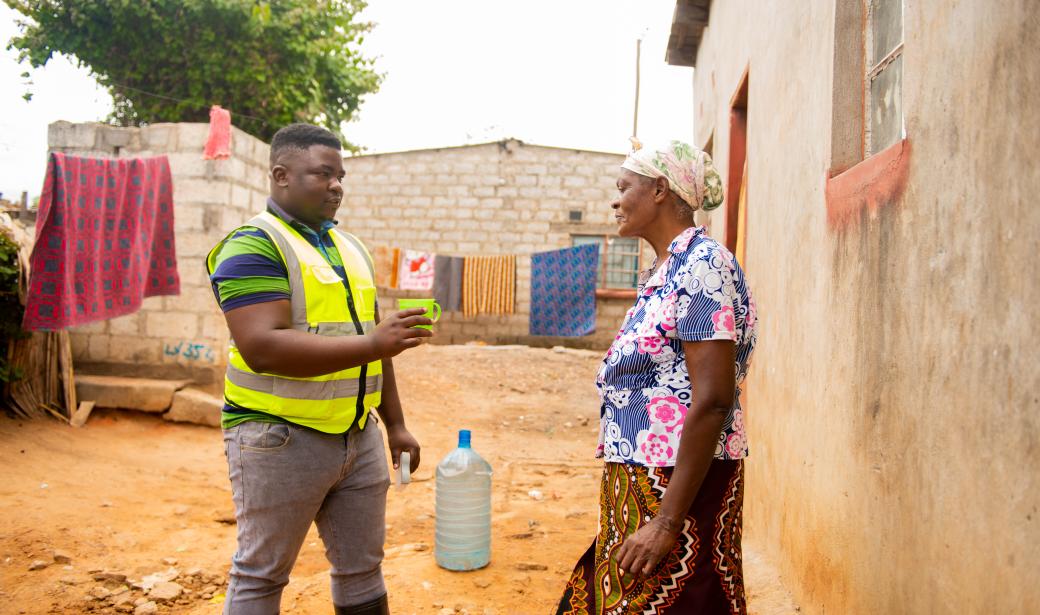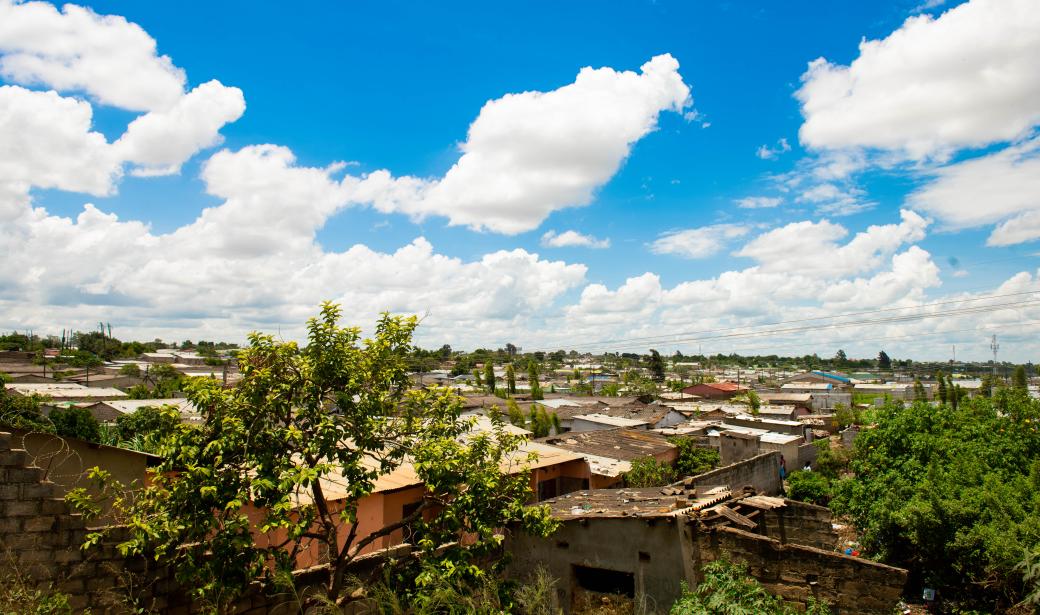Lusaka ‒ Zambia declared a cholera outbreak in October 2023. Three months later, cases began to decline as response efforts were strengthened through a concerted push by the national health authorities with support from international and local partners, frontline health workers and community-based volunteers.
Among the key outbreak response measures that have helped turn the tide against the outbreak is early detection and reporting of cases at community level. Every day, active case-finding teams visit households where cases have been reported to ensure that other potential cases are detected quickly, so preventing further transmission. The teams also provide households with comprehensive information on how to prevent cholera.
Through its Integrated Disease Surveillance and Response platform, World Health Organization (WHO) has supported the Ministry of Health’s surveillance efforts, at both community and health facility levels. The Organization provides technical guidance, tools and support with data analysis and interpretation.
Active case finding is very important to the cholera outbreak response, says Chola Shimangwala, Environmental Health Officer for Lusaka District. Accounting for 86% of the total cholera cases countrywide, it is important for the district to find out what the source of the infection is, whether it is environmental or due to individual or household risk factors.
“This means we are not just shooting in the dark. Active case finding gives us a clue on which area to concentrate our efforts and resources and improve our interventions,” says Shimangwala.
Lusaka’s six sub-districts all have active case finding teams made up of around 120 people.
“When we reach the household with the reported case, I collect data on some of the things that they may have eaten, some of the places that they may have visited, and on the number of people that have been exposed, for us to determine who is potentially at risk,” explains Chilufya Kafula, an environmental health technologist and the team member responsible for collecting data at the household level.
If they identify anyone with symptoms, the team refers the person to the nearest health facility. “This reduces the number of people who die before they can reach a facility,” she explains.
He has personal experience of the challenges faced by community members and takes his role seriously. “To lose a life is nothing good,” he says. “I volunteer because I've always wanted to see improvements for our society. I've always wanted to be part of the solution.”
“When I educate people about hygiene, I know that when I leave that house, those people will work on those things that I've taught them. That makes me happy and it's a way of giving back to the community,” says Mumba.
After using a special kit to conduct the tests, Imbuwa determines that it is indeed safe. This is encouraging news, indicating that the water from the local communal tap is well chlorinated and safe to drink. The team will however still stop at the communal tap for Mumba to confirm the test results, before moving onto the next household with a reported case.
“WHO plays a key role in the surveillance system in Zambia, not just for this cholera outbreak, but for all outbreaks that we experience in the country,” says Dr Muzala Kapina, director of surveillance and disease intelligence at the Zambia National Public Health Institute.
Communications Officer
World Health Organization Country Office, Zambia
Email: kapemak [at] who.int (kapemak[at]who[dot]int)
Media Relations Officer
WHO Regional Office for Africa
Email: dalalm [at] who.int (dalalm[at]who[dot]int)
Tel: +254 703 245 761 (WhatsApp)



